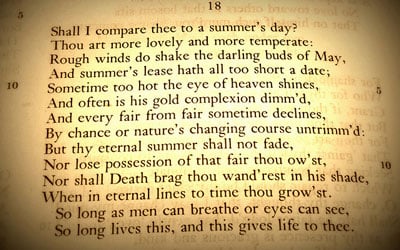Increasingly cynical. Most people - doctors, teachers, furloughed ...
- have taken the opportunities offered by leaders who seek only to
minimise risk, to avoid work. The state takes over responsibility for
everyone and there's no personal incentive left. Just irresponsible
workshy.We've also created the metoo and "it's all about me" and overly-woke selfishness, with disregard of the other. That's the culture we've created.This
fuss and expense to protect people who are from the past, at the
expense of present workers' production and future...
Tuesday, 29 June 2021
Sunday, 27 June 2021
LOOK AT WHAT'S HAPPENING : “Vos papiers s’il vous plaît!”.
Here is what we've seen during the pandemic : where does it take us ?Theres been Boris’s spending spree, his net zero agenda and the housing shortage.What dont we Brits like? ID cards, a govt that tells us what to think
or wear, officials who interfere with our choice of partner.What's happening next? digital IDs connecting health and financial data; bitcoin tracking all or incomes and expenses as the basis for a social credits scheme; well be tracked using our phone signals ("contact
tracing" of course); travel bans at the first sign of...
FREE TRADE - HOW IT WORKS
How does free trade actually work?
There were three groups in the capitalist system in Ricardo’s world (and there still
are):
Workers
/ Employees
Capitalists
/ Employers
Rentiers
/ Landowners / Landlords / other skimmers, who are just trading, speculating, taking out of the
system, not contributing to its success.
Identifying the unproductive group at the top of society didn’t go down too well.
They needed a new economics to hide the discoveries of the classical economists - "neoclassical economics".
It confuses making money and...
WHICH WASHING MACHINE
Want to buy British?I did some research and replaced my washing machine with the British made Ebac which was far superior and comes with a factory seven years parts and labour warranty and option of both hot and cold fill which means a quicker wash, less wear, cheaper e...
Saturday, 19 June 2021
TRADITIONAL V. MODERN CONSERVATISM

The lockdowns have served well the political ambitions of those in
power by muting channels for dissent. Of course, lockdowns have also
saved many tens of thousands of lives. But, never let a crisis go to
waste. There's a feeling that we are victims of a conspiracy to silence
and mislead us and divert our attention towards covid and away from this
PM's political agenda.
We see Boris with his 80 seat majority
taking the...
Sunday, 13 June 2021
LIFE AFTER LOCKDOWN - WHEN WILL WE BE FREE AGAIN?

Covid-19 is a coronavirus, the flu is also a coronavirus, but I wouldn't call covid-19 "the flu".To
be practical rather than purist, as I understand things, everyone who
wants to be vaccinated will be by September. So this seems to be a a
date everyone can ink into their calendars.Thereafter, and maybe
before, people who've had two jabs don't need to wear a mask, nor keep
social distancing, nor practise frequent hand washing.They...
SENDING TOULOUSE SAUSAGES TO PARIS

It seems that Macron did not suggest that Northern Ireland was not part of the
UK, but simply that Northern Ireland is a separate country. The position as to
this is not obvious at all. For at least some purposes, the United Kingdom is
not so much a country, but a union consisting of two countries (England and
Scotland), a principality (Wales, albeit that the local government of Wales now
asserts that Wales is a country in its own...
Thursday, 10 June 2021
Sunday, 6 June 2021
TIS NOT TOO LATE TO SEEK A NEWER WORLD

https://youtu.be/ptqoSZgh7q8https://poems.poetrysociety.org.uk/poems/ulysses/https://en.m.wikipedia.org/wiki/Ulysses_(poem)The two pieces in the poem that I especially appreciated:"I am a part of all that I have met;Yet all experience is an arch wherethroughGleams that untravelled world, whose margin fadesFor ever and for ever when I move.""We are not now that strength which in old daysMoved earth and heaven; that which we are, we are;One...
THE SONNET

When writing a Shakespearean-style sonnet. ...This form of poetry is required to follow a specific format including length, rhythm, and rhyme scheme. To write a sonnet properly, follow this process (from "poetry for dummies"):Select a subject to write your poem about (Shakespearean sonnets are traditionally grounded as love poems).Write your lines in iambic pentameter (duh-DUH-duh-DUH-duh-DUH-duh-DUH-duh-DUH.Write in one of various standard rhyme...
TU FAIS QUOI DANS LA VIE ?

Tu fais quoi dans la vie ? Je suis prof de l'être. Je corrige les maux et j'en saigne.Moi ? oh dans la vie, je me promène, je m’éclate, j’apprends des choses, je lis, j’admire la nature, je communique avec des gens, je m’émerveille, je profite, JE VIS, quoi !Et toi, qu’est-ce que tu aimes dans la vie...










